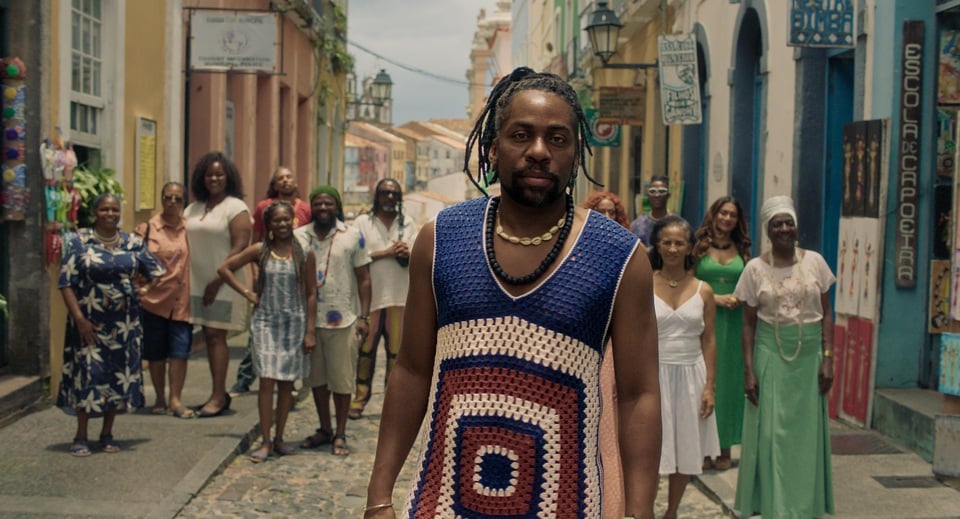The reporter was going to a hotel in the city center to interview Lázaro Ramos, when he passed by the door of the Cine Glauber Rocha, in Praça Castro Alves. The driver of the car was amazed at the movement of people and the number of cars parked there during the holiday of November 15th, at 4 pm: “What is this?! It must be some party!”
Depending on what you mean by “party”, you could even say that, yes, it was a party for that audience, who spent 15 years at that moment: Ó Paí Ó, a Bahian comedy classic that conquered local cinemas in 2008 , finally got a long-awaited second part. And look, it was just a preview. The premiere only takes place this Thursday (23), a week later.
Cláudio Marques, owner of Cine Glauber, expected the success of those screenings, but confesses that it was above expectations: “We had the cinema full, 100% occupancy, from 2pm to 11pm. There were 16 screenings of the film, eight of which were for sale for the public and four for guests”, reveals the businessman. In total, on that day alone, three thousand people just came to watch Ó Paí Ó 2.
On the weekend, still in preview, the success continued: three thousand more people. In other words: in total, six thousand spectators, enough to fill the Concha Acústica and still have people left out. “I’m impressed with how the population identifies with the film. Glauber was number one in attendance, beating all shopping malls [que também fizeram pré-estreia do filme]. This is the result of our effort to promote national cinema and welcome the population that has difficulty paying for more expensive tickets”, argues Cláudio.
Lázaro is also full of enthusiasm: “This second film was born out of the public’s desire and only exists because of it. A few years ago, they rescued scenes from the film on social media, made stickers [do Whatsapp]memes with the phrases… I’ve never seen anything like what happened at this premiere, with tickets selling out in two hours in several sessions, a week before the premiere.”
In the new story, set 15 years after the first film, Dona Joana (Luciana Souza) mourns the loss of her children Cosme and Damião and continues to face the problems of coexistence with the tenants of the tenement in the Pelourinho neighborhood. Neuzão (Tânia Tôko), the owner of the bar, also has problems: she is threatened with illegally losing the source of her livelihood to a foreigner. That’s when the community comes together to save their friend’s bar. To do this, they will work at the Iemanjá party, where they intend to raise money for her.
Roque, the character of Lázaro Ramos, continues to seek fame and success as a singer. “It’s the same Roque [do primeiro filme], faithful to its community. But now he is a father, he is an example and he has a certain frustration because he has been trying to be successful for a long time. And in this film he finds the meaning of success for him, in the values he has.”
And Wagner Moura, who starred in hilarious scenes in the first film with Lázaro, can do it for the public. Lázaro is missed, he himself assumes:
by
Lázaro Ramos – actor, about his friend and colleague Wagner Moura
“I miss him in my daily life, I don’t know what he’s doing in Los Angeles (laughs)”, referring to the place where his colleague lives today. “I always tell him ‘Stop being successful there and come back here!”
As in the first film, there is a lot of music in this second part. The public may find it strange because, like in Hollywood musicals, the characters sometimes dance and sing, for no apparent reason. But Lázaro doesn’t see any problem with that: “In these moments, it’s as if we were driving around Salvador. Sometimes, we drive around Bahia and see someone dancing in the street, who opens the hood of the car and goes dancing. That’s it. ! Ó Paí Ó is a car ride through the streets of Salvador”, says Lázaro with fun.
Behind the cameras, there is an important difference in relation to the first film: in the direction, in place of Monique Gardenberg, is Viviane Ferreira, a black filmmaker from Bahia, from the film Um Dia com Jerusa (2020). “It changes the perspective, it changes what it adds to the knowledge of our culture [a cultura negra]especially regarding religiosity, the way of framing it, the text that will be said, a more political speech…”, argues Lázaro.
Viviane talks about the importance of having a black woman directing a film about the lives of black people and the problems that particularly affect them: “As with every experience that allows itself to be portrayed from within, access to achievable understandings only by those who experience the particularity and singularity of being part of a specific community, it always ends up contributing to narrative power.
And, for her, her experience can serve as an example: “It’s a change that makes many other black girls from Cajazeiras, Estrada Velha do Aeroporto and Bairro da Paz awaken the dream of also becoming film directors.”
In theaters: Saladearte (Daten Paseo, Ufba, Cinema do Museu, MAM); Glauber Rocha; UCI Orient (Shopping da Bahia, Barra and Paralela); Cinemark Salvador Shopping; Cinépolis (Salvador Norte and Parque Shopping)


